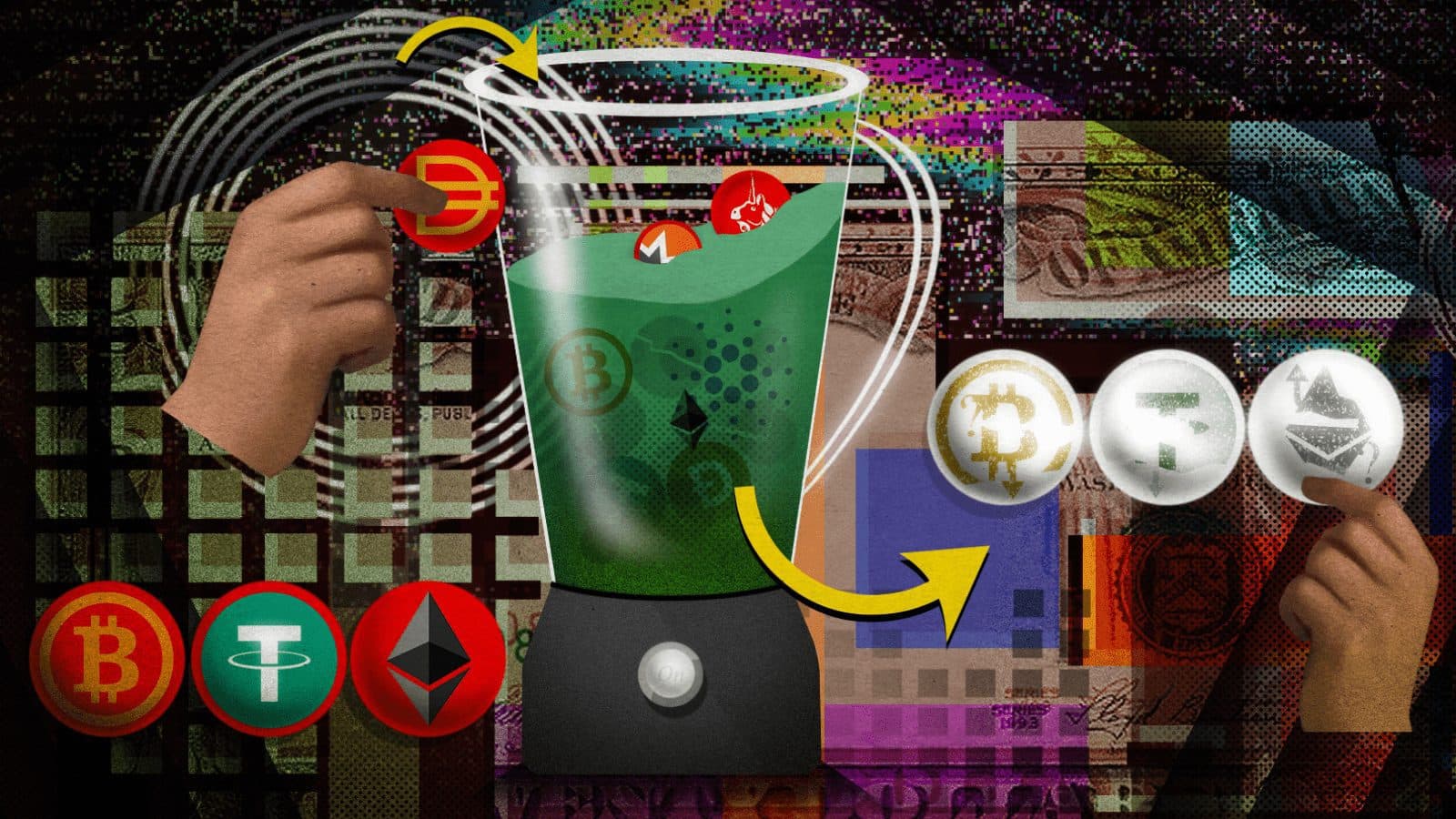US Treasury Sanctions First Crypto Mixing Service Following Record Hack
In its first sanction against a crypto mixing service, the Treasury targets Blender.io, which it says was used in the Ronin Network breach

Blockworks exclusive art by axel rangel
- North Korean mixer Blender.io was used to conceal funds from the Ronin Network hack
- The Treasury has already sanctioned the group the FBI said is responsible for the largest cryptocurrency hack to date
The US Treasury Department has levied its first sanctions against a crypto mixing service, or a means of obscuring the origin of a digital asset.
The Treasury on Friday alleged North Korea-based hacker Lazarus Group — which in March allegedly stole $625 million from Ethereum-linked sidechain Ronin Network — used the sanctioned company, Blender.io, to conceal the illicit funds.
Blender was used to launder more than $20.5 million of the hacked cryptocurrency, the Treasury said in a statement. The attack remains the largest crypto hack on record.
“Virtual currency mixers that assist illicit transactions pose a threat to U.S. national security interests,” said Brian Nelson, under secretary of the Treasury for terrorism and financial intelligence. “We are taking action against illicit financial activity by the DPRK and will not allow state-sponsored thievery and its money-laundering enablers to go unanswered.”
In April, the Treasury in its first move sanctioned Ethereum addresses linked to Lazarus Group.
The news comes as the digital asset industry continues to evaluate the role and risks of mixer services. Hackers used mixing service Tornado Cash to try to conceal 5,400 stolen ether linked to April’s $80 million Fei Protocol hack, according to BlockSec Chief Technology Officer Lei Wu.
The services, while known to be often linked to money laundering, are not illegal.
“There are legitimate privacy concerns that [mixers] can help address,” Kim Grauer, director of research at Chainalysis, said during a panel at the Cornell Blockchain Conference in New York. “There is a lot of hacking happening, which is another bad impact of growing so fast, but there’s also an opportunity there to build more secure platforms.”
Get the news in your inbox. Explore Blockworks newsletters:
- The Breakdown: Decoding crypto and the markets. Daily.
- 0xResearch: Alpha in your inbox. Think like an analyst.






